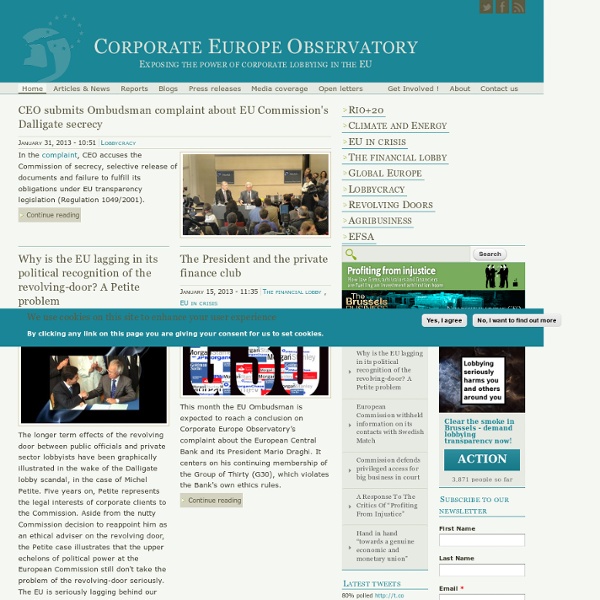



NO BORDERS: Louisville’s Radical Lending Library Environnement et développement L’Équipe de projet CAD-EPOC sur le changement climatique et la coopération pour le développement est constituée d’experts du changement climatique, et notamment de l’adaptation à ses effets. Elle a pour principale mission d’œuvrer en faveur de la prise en compte de l’adaptation au changement climatique dans la coopération pour le développement. Ses activités s’articulent autour de trois grands axes : 1. Élaborer des orientations pour la prise en compte de l’adaptation au changement climatique dans la coopération pour le développement Ce document d’orientation a été approuvé par les pays membres de l’OCDE et publié en 2009. Il marque une étape importante en ce qu’il apporte des réponses aux préoccupations grandissantes suscitées par les risques que fait peser le changement climatique sur les activités de coopération pour le développement des pays de l’OCDE (en savoir plus). 2. Related Documents Also Available DAC-EPOC Task Team on Climate Change and Development Co-operation
Occupied London « Les instruments de marché pour la biodiversité : la nature à tout prix ? » A session of the IDDRI - Fondation d'entreprise Hermès Théâtre de la Cité internationale, espace Adenauer, 17 boulevard Jourdan, 75014 Presentation : In order to investigate the development of MBIs for biodiversity and ecosystem services, the Fondation d’entreprise Hermès and IDDRI are convening an international conference that will address the following issues: Programme : 8.30am – 9.00am: Welcoming attendees 9.00am – 10.00am: OPENING SESSION - Welcome address: Pierre-Alexis Dumas (Fondation d’entreprise Hermès) - Introduction: Laurence Tubiana (IDDRI) - Presentation of the background paper to the conference: Romain Pirard (IDDRI) >> see the video of the opening session 10.00am – 10.50am: FIRST SESSION "Market-based instruments for biodiversity and ecosystem services: Concrete illustrations and references to markets" Session chaired by Xavier Le Roux (FRB) >> see the video of the first session (1st part) 10.50am – 11.20am: Coffee Break 11.20am – 12.40pm: FIRST SESSION (Continuation)
LENIN'S TOMB Untitled Document Forest Trends - Our Mission Forest Trends is a Washington D.C.-based international non-profit organization that was created in 1998 by leaders from conservation organizations, forest products firms, research groups, multilateral development banks, private investment funds and philanthropic foundations. Our mission is four-fold: to expand the value of forests to society; to promote sustainable forest management and conservation by creating and capturing market values for ecosystem services; to support innovative projects and companies that are developing these markets; and to enhance the livelihoods of local communities living in and around those forests. We do this by analyzing strategic market and policy issues, catalyzing connections between forward looking producers, communities and investors, and developing new financial tools to help markets work for conservation and people.
Plan Vivo › The need for Plan Vivo The scale of the challenge Deforestation and land-use change cause almost a third of GHG emissions as well as loss of biodiversity and soil degradation. The worst degradation is happening in developing countries where rural communities are locked in negative spirals of poverty and loss of natural resources. It is crucial that global mechanisms, including carbon and other ecosystem services markets, recognise the central role communities need to play in tackling these problems. Whilst there is currently broad acceptance that forests should be part of international climate change frameworks, there is no guarantee that this will work for communities. Communities and climate change adaptation Many rural households are extremely vulnerable to changes that may result from climate change, such as crop failure from drought or damage from floods or fires. Livelihoods are only sustainable when they can cope with and recover from stresses and shock. The need for simple, practical systems
Environmental Entrepreneurs: About E2 Environmental Entrepreneurs (E2) is a national community of business leaders who promote sound environmental policy that builds economic prosperity. We provide an independent, nonpartisan resource for understanding the business perspective on environmental issues. Working with business, environmental and non-traditional allies, E2 helps shape state and national policy that’s good for the economy and the environment. To create a platform for independent business leaders to promote environmentally sustainable economic growth. Business leaders join E2 as individuals who believe there is value in bringing a reasoned, economically based approach to addressing environmental issues. E2 leadership is drawn from our membership: our founders and Chapter Directors are business people who serve in a volunteer capacity. In order to have influence, we build relationships with public officials at the national, state and metropolitan level. Contributions to E2 are made directly to NRDC.